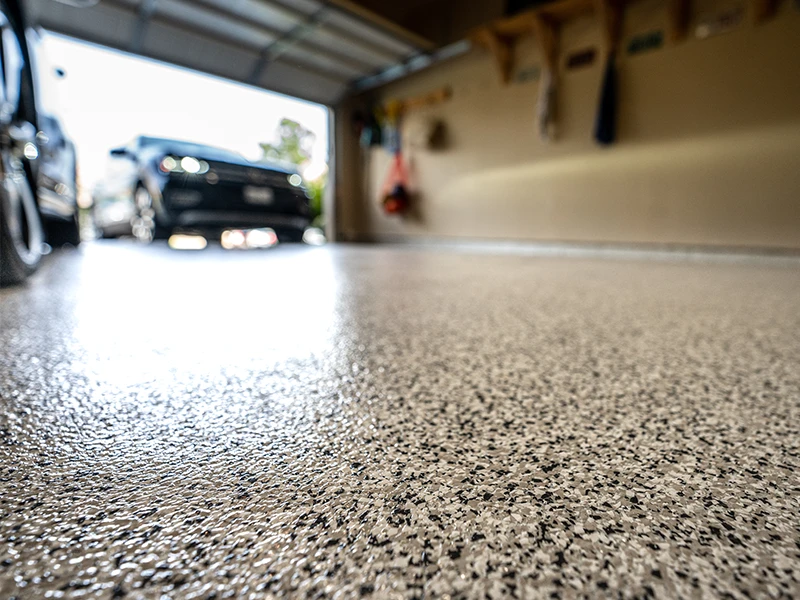Features and Benefits of Garage Flooring
The garage floor looks aesthetically better than a simple concrete floor. They can last for decades, and do not require a lot of maintenance and cost once installed. Garage flooring comes in epoxy resin, floor mats, vinyl rolls, soft plastic tiles, and hard plastic tiles. The features and benefits of using them are –
They are sturdy, reliable, and functional in a garage. However, they may not hold the force of a car jack, and you will need to put a sheet metal or a wood plank layer on the floor.
Soft plastic PVC tiles can hold the pressure of a car jack. They are resistant to mold and mildew and are comfortable to walk on. The soft plastic tiles come in a range of colors and design patterns.
Compared to setting the tiles, rolling a vinyl sheet on a large floor is easy for subflooring. They are best for large residential and commercial garages and come at competitive prices.
From motorcycles to cars and trucks, floor mats cover a limited area on the garage floor and protect a cement garage floor from outside elements.
Epoxy resin is a highly malleable material that is easy to prepare and spread. It makes your garage floor pop while getting an anti-slip and stain-resistant seal. Epoxy comes in glossy and semi-glossy finishes and is extremely easy to apply on concrete.
Heavy duty commercial grade floors can handle forklifts and machines, which a normal garage floor is not built for. Residences with several large vehicles can also have commercial-grade garage floors.
